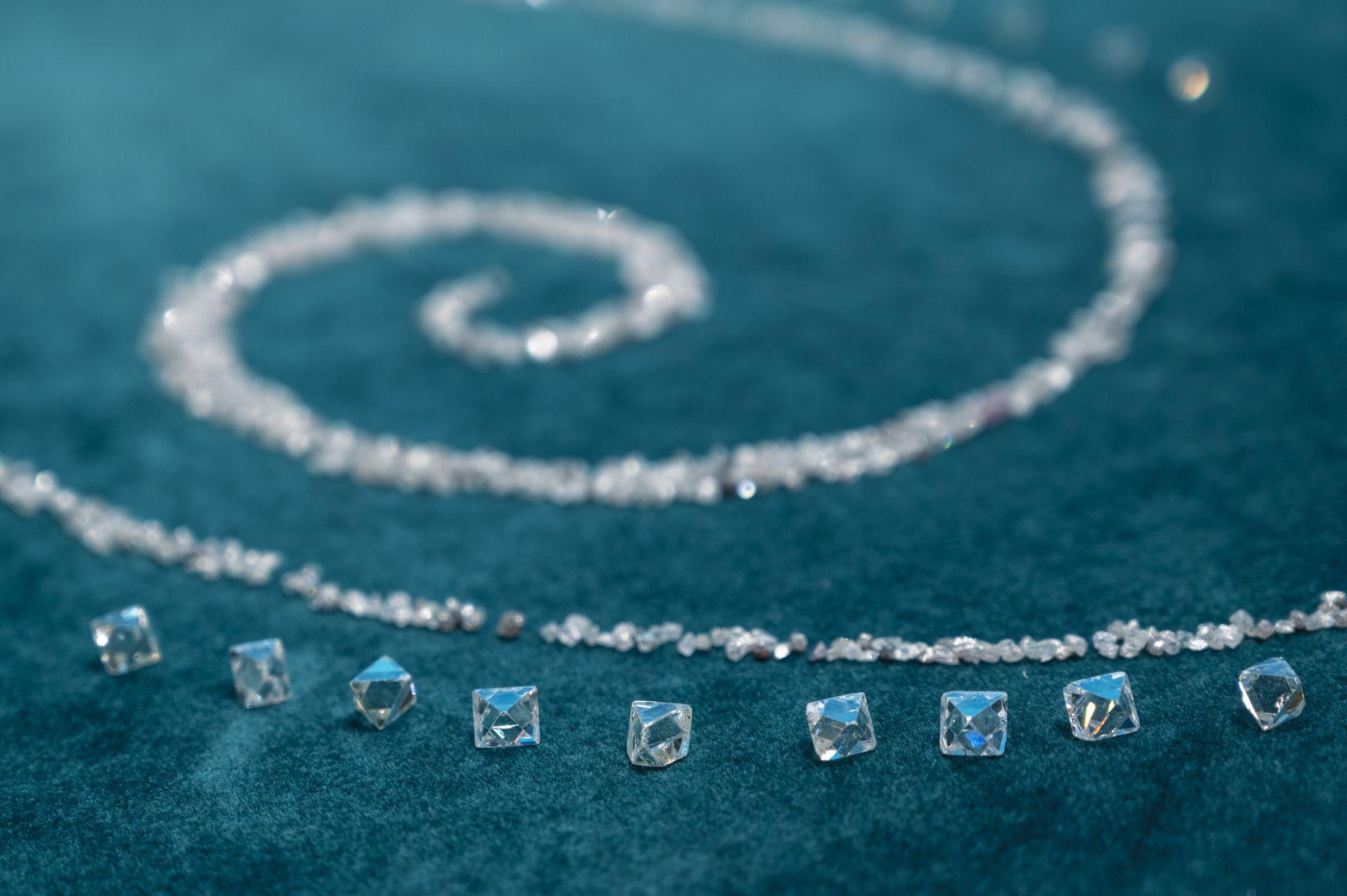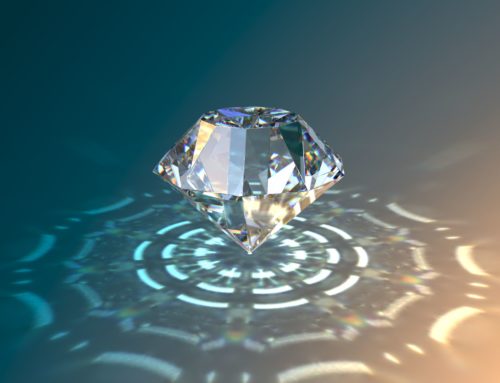Small diamonds from 0.001 to 0.18 carats, referred to as melee diamonds, include diamond chips. Diamond chips have become a popular jewelry choice and can be seen on rings, bracelets, and more—but do these fragments have any value? How much is a small diamond worth? How much is a tiny diamond worth? We’ll attempt to answer these questions below.
Do Diamond Chips Have Any Value?
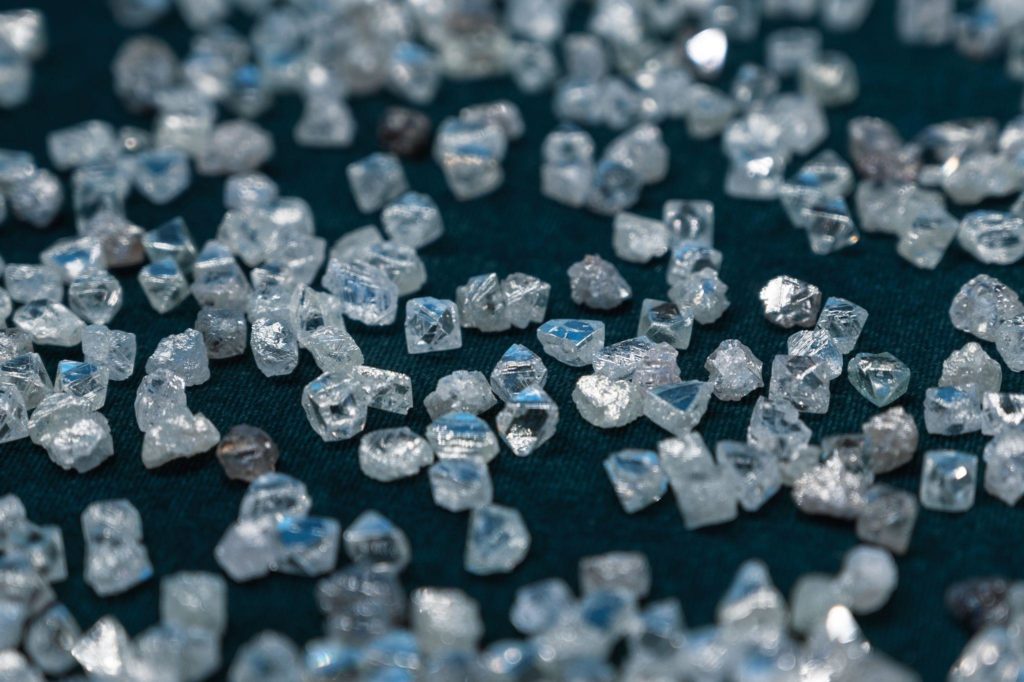
Compared with diamonds that have gone through the cutting and polishing process, diamond chips come in at a far lower diamond price per carat. This is due to their small size, but also because they don’t contain the facets that give cut diamonds their sparkle. Therefore, a diamond chip cannot reflect or bend light nearly as well as its faceted counterpart.
Diamond chips are not polished and have a rough surface, which also has a negative effect on their sparkle. All of these factors contribute to the low value of diamond chips.
How Diamond Chips Are Evaluated
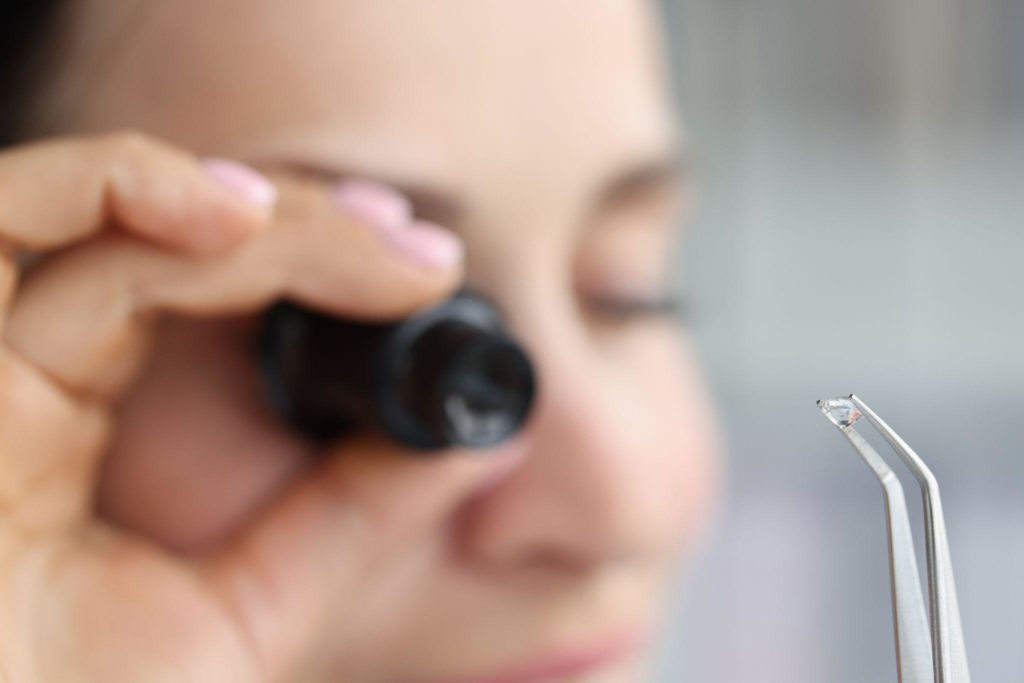
Diamond chips are evaluated according to the same characteristics as larger diamonds that have been cut and polished. These characteristics are known as the four Cs of diamonds:
The above characteristics will provide a lot of information about any piece of small diamond jewelry you may be looking to sell.
Diamond Chip Clarity
Diamond clarity is a characteristic that refers to the number of flaws in a stone. The clarity scales goes from flawless to included. There are several clarity grades, but the fewer the flaws, the higher the value. It is true that flaws in small diamonds and chips can be so small that they are not visible to the naked eye. However, prominent inclusion can still be present. Where this is the case, it’s probably best to have another piece of jewelry evaluated for its worth.
Diamond Chip Color
Diamond shape is just as important as color in a cut stone; the farther away from yellow that a small diamond is, the more valuable it will be. Color also refers to the way in which diamond chips are arranged on jewelry; ideally, they should appear uniform in color across a diamond ring, and not be in patches of light and dark colors. Colorless and near colorless diamonds are the most sought-after.
Diamond Chip Cut
Because it isn’t possible for diamond chips to be faceted, assessing their cut is not applicable. As well, because a chip has no cut, its value can be far below that of a round brilliant cut diamond of the same size.
Diamond Chip Carat Weight
Just like faceted and cut stones, the larger and more flawless a diamond chip is, the more it will be worth per carat. The smaller the chip, the lower the worth.
Difference Between Single-Cut Stones and Diamond Chips
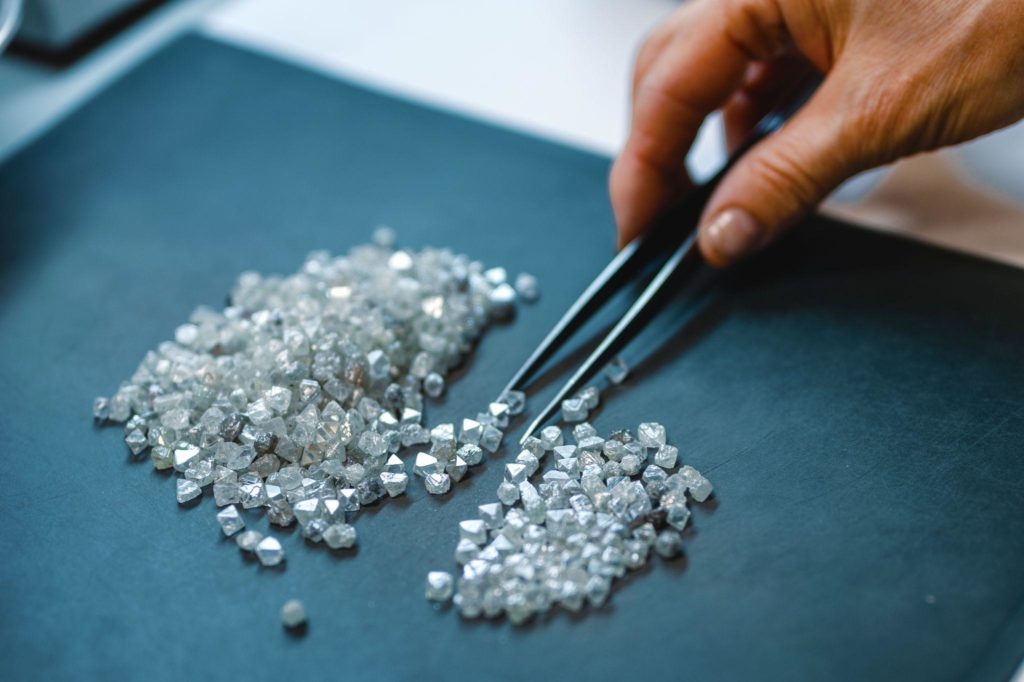
A single-cut stone typically comes in at under 0.2 carats and is faceted. However, because these stones are smaller in size, they also contain far fewer facets than full-cut stones of a higher carat count, which may contain as many as 57 or 58.
Also referred to as diamond accents or accent diamonds by many jewelers, single-cut stones are typically seen in halo settings where they’re placed in a manner that complements a larger center stone.
In the past, jewelers weren’t able to cut a faceted stone out of small diamond pieces, simply because stone-cutting technology hadn’t yet evolved to that point. As a result, diamond chips were used. Today, the single-cut diamond is chosen in favor of loose diamonds.
One important thing to note when selling jewelry with diamond chips is that this term is also used to describe single-cut diamonds. Therefore, when selling your diamond jewelry, the appraiser should know whether the stones are actually faceted or completely uncut.
Value of Diamond Chips
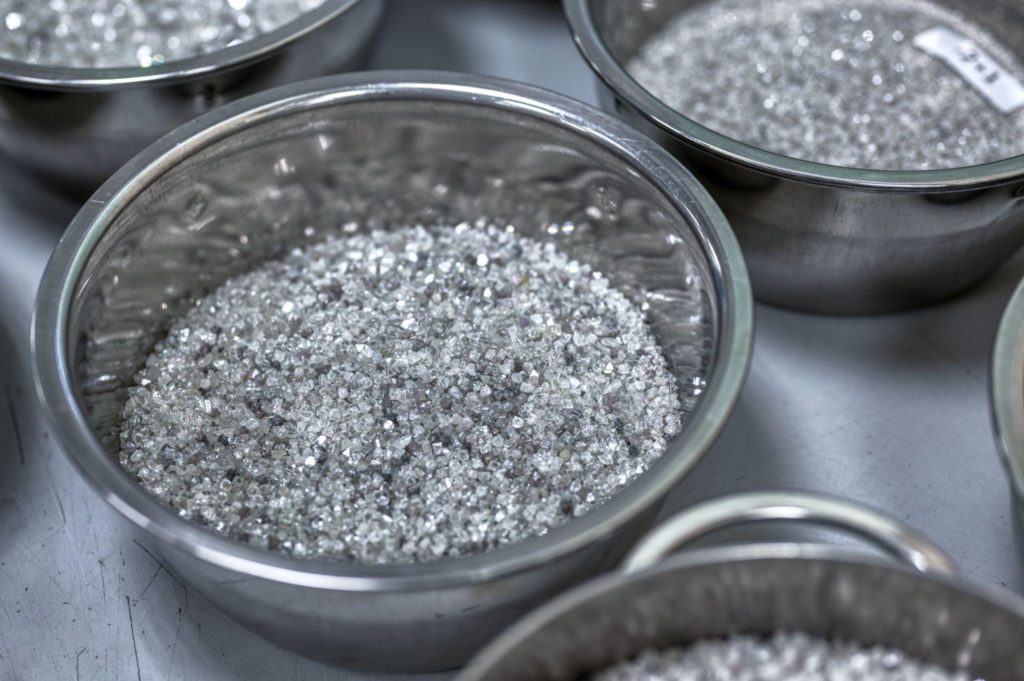
It is true that the value of any diamond or other stone will vary over time. As well, the price of diamonds will differ between retail and wholesale.
Diamond chips tend to be less expensive per carat than polished diamonds, mainly due to their size and lack of faceting, which results in lower brilliance and sparkle.1 The value of diamond chips is influenced by color, clarity, and size, but they generally offer a less costly alternative to fully cut and polished diamonds.
How to Sell Small Diamonds
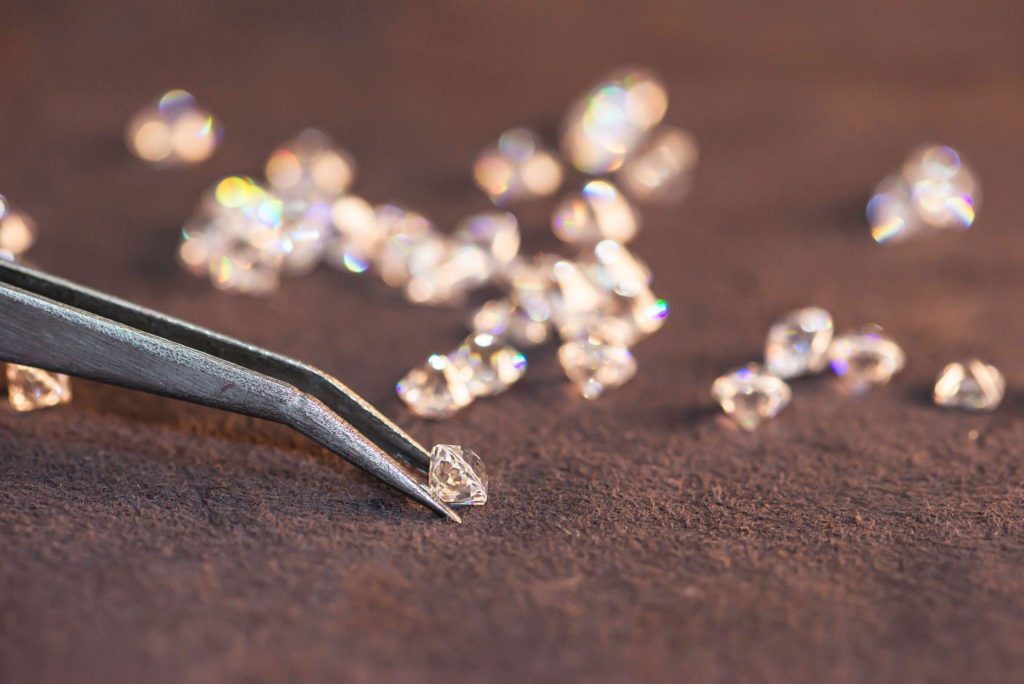
Knowing how much tiny diamonds are worth requires both skill and experience. Taking your diamonds to a local jeweler can often mean getting less than true value because they have more expenses, a smaller customer base, deal with fewer transactions, and need to maintain a certain amount of profit.
The right buyer will be able to professionally appraise your jewelry and also consider the materials in the setting when appraising your piece. They’ll also have experience with diamond and jewelry purchases and be able to complete the transaction quickly and securely.
Where to Sell Small Diamonds
Diamonds USA is an online diamond buyer. Because we don’t have the high overhead of a physical storefront location, we are able to offer you far more for your melee diamonds than offline jewelers and other buyers.
Our experienced appraisers are certified by the Gemological Institute of America (GIA). The GIA is the most highly respected and largest gemstone research and education organization in the country and holds their appraisers to strict standards.
We have decades of experience working with individuals like you and Fortune 500 companies. Our ability to also assay gold, silver, and platinum settings means that we can offer prices that would otherwise only be offered to private companies.
With Diamonds USA, you never have to wonder how much your small diamonds are worth. Every piece we receive goes through a comprehensive, careful, and accurate appraisal by our qualified and experienced diamond experts, and you’ll receive payment for the full and actual value of your jewelry.
In addition to our many years of experience and excellent customer service, we also offer a Price “Beat” Guarantee — we will beat any competitor’s written offer or return your items to you free of charge.
Just request your free free Appraisal Kit to ship (free, insured!) your tiny diamonds, melee diamonds, and diamond chips, as well as any gold, silver, or platinum you have:
Get a 10% Bonus Today
"*" indicates required fields
Post Revisions:
There are no revisions for this post.
